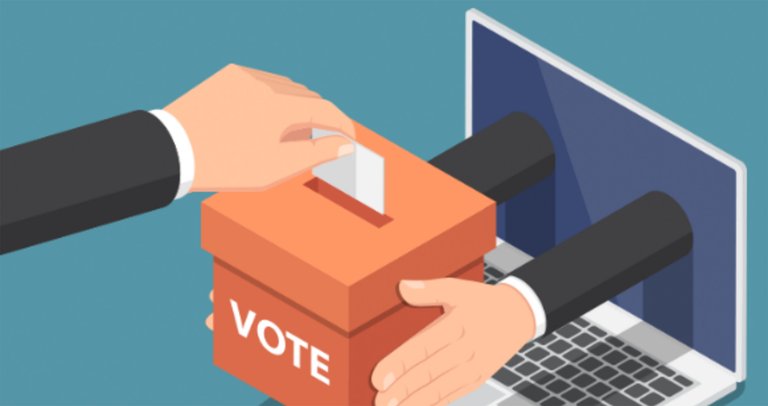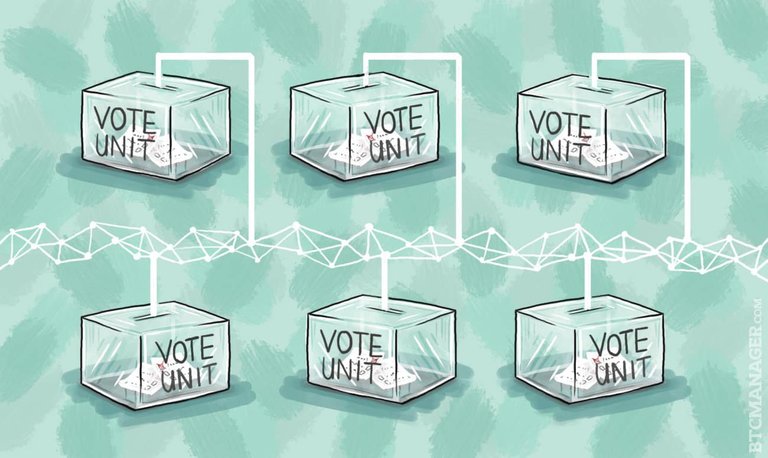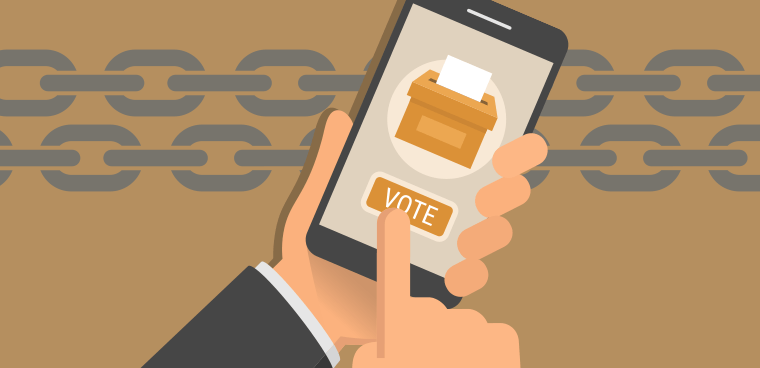Voting with blockchain: security for voters and an end to "election fraud"?

Blockchain is emerging as a potential solution to the erosion of voter confidence in traditional systems. Discover how this technology could redefine the future of election security. In 2024, over 100 countries worldwide will hold elections, making it a landmark year for global democracy.
However, the increasing presence of artificial intelligence (AI) and the rise in online disinformation have further eroded trust in traditional voting methods. These technological challenges are impacting voting systems, especially mail-in voting, in significant ways.
In fact, following the recent 2024 U.S. presidential election, a Public Affairs Council poll found that only 37% of Americans believe elections will be conducted fairly and transparently.
Blockchain Voting Gains Momentum in the Electronic Voting Market
As trust in traditional voting methods declines, electronic voting systems—particularly those incorporating blockchain—are emerging as promising solutions. According to Business Research Insights, the electronic voting systems market, valued at $3 billion last year, could grow to $10 billion by 2032. This growth is expected to be driven by hybrid voting models, which combine traditional and blockchain-based approaches.
A spokesperson for Business Research Insights explained, “The increased adoption of blockchain in electronic voting systems (EVS) is fueled by its ability to enhance security, transparency, and verifiability. Blockchain-based voting structures offer immutable records, cryptographic verification, and decentralized consensus, effectively addressing issues of tampering and fraud.”

Early Applications of Blockchain Voting Models
Although blockchain voting is still in its early stages, practical applications are beginning to showcase its potential. For instance, Voatz, a mobile-based voting platform, utilizes blockchain to bolster voter security and verification. Voatz is used in select U.S. counties to serve military voters, U.S. citizens abroad, and voters with disabilities, enabling ballot requests via smartphone. Voters submit ballots through biometric or PIN verification, receiving an anonymous receipt to confirm selections. All election data is stored on a distributed server network to ensure tamper-proof records.
Claire Consulta, a spokesperson for Voatz, added, “We prioritize privacy by using zero-knowledge proofs (ZKProofs) and other privacy-preserving technologies to safeguard voter anonymity, adhering to standards comparable to traditional voting.”
Recently, Voatz made history in Mexico’s 2024 federal elections, where citizens living abroad could vote via smartphone. In 2022, the platform was also adopted by 15 Canadian cities for municipal elections and was used in Florida’s state legislative voting through the Digital Democracy Project.
Decentralized Blockchain Models for Voter Identification
Decentralized models for secure voter identification are also emerging. Ingo Rübe, CEO of KILT, a decentralized identity protocol, explained that decentralized identifiers (DeIDs) and verifiable credentials (VCs) on blockchain could resolve critical voter identity issues, reducing risks such as double voting while ensuring secure, private identification. Rübe noted, “DeIDs can strengthen electoral voting by ensuring that each person votes only once, preventing Sybil attacks.”
DeIDs act as digital ID documents, allowing voters to confirm eligibility privately and reduce the need for physical verifications. While large-scale implementation faces challenges from existing systems, pilot projects and experimental applications are actively exploring DeID-based voting solutions.
Blockchain Securing Election Documents

Blockchain is also being used to safeguard critical election documents. Simple Proof co-founder Rafael Cordon shared with Cryptonews that the company helps institutions ensure document integrity by using the Bitcoin blockchain to create immutable records. During last year’s Guatemalan general election, Simple Proof secured over 125,000 essential election documents, helping prevent tampering allegations and protecting vote-count sheets on election night.
Cordon explained that Simple Proof uses the OpenTimestamps protocol, which employs hash functions to securely timestamp documents on the Bitcoin blockchain. Guatemalan citizens can verify vote counts online, ensuring transparency without compromising ballot secrecy. Other governments are exploring Simple Proof’s potential to combat electoral disinformation and restore trust.
Challenges in Blockchain-Based Voting Systems
Despite the potential of blockchain-based voting, significant challenges remain. Bart Wyatt, CTO of the EOS Network Foundation, warned that blockchain voting systems face notable obstacles that could affect election integrity and turnout. For instance, accessibility remains a challenge in certain regions.
Wyatt explained, “Fifteen U.S. states lack voter ID requirements, and twenty-four allow some form of same-day registration.” He added that blockchain applications are notoriously challenging to gain user acceptance. Introducing blockchain-based voting could thus add unnecessary barriers compared to the relative ease of current voting systems, potentially hindering same-day registrations for those without suitable mobile devices.

Dave Hendricks, CEO of Vertalo, added that while blockchain is a reliable, tested database technology, it is often conflated with cryptocurrencies. Hendricks remarked, “This confusion creates uphill challenges. However, as older electronic voting equipment becomes increasingly vulnerable, it’s likely that election commissions and technology providers will pursue more blockchain-based solutions.”
In the coming years, as voting technology continues to evolve, blockchain’s role in ensuring election transparency, security, and voter confidence could prove to be transformative.
We definitely need this !
I've seen preliminary statistics from the recent US election which appear to show what might be politely called "anomalous data" - of the states with no voter ID requirement, all had a significantly higher turnout than other states, and all except one gave the Democrats victories which were an order of magnitude above the difference between the two parties in other states, as well as not matching pre-election polling. While a few (California, New York etc) might really have returned these results, the overall picture is a concern.
More locally to me, Woking in the 2000's was notorious for electoral fraud from 2000 to 2018, when it became one of the first UK constituencies to trial voter ID. Apocryphally, at one general election there were more postal votes from a specific demographic than there were electors in the whole constituency even before in-person voting started !
Indeed. ALso the latest Trump elections, were Biden won, were considered one of the biggest election fraud in history
Yep, one of the greatest trolls of all time was the Russians pointing out that their election had thousands of international observers, while the 2020 US election had 67 from friendly countries only, and they were only allowed to watch the voting but weren't allowed entry to see the counting process.
I followed the aftermath with interest; all the legal challenges were thrown out on procedural grounds of various types, so the evidence was never actually tested in court.
Fun fact is that Trump won in all the jurisdiction where ID proof was required while Dems won in al the places where ID proof was not required. Just a coincidence?
Yep, I saw that. It's possible that some of those states were ones where the Democrats would have won anyway, but the actual numbers even there fall into the realm of what might politely be described as "a statistical anomaly".
I saw similar here at the recent General Election. Our constituency were good at checking ID's and while we were at the polling station voting we saw a family with 6 voters being turned away because their ID documents clearly showed they weren't English citizens. But how many people voted in constituencies that weren't as good at checking ID's, or gave in to the seriously pushy attitude we saw being used ?
Congratulations @mikezillo! You have completed the following achievement on the Hive blockchain And have been rewarded with New badge(s)
You can view your badges on your board and compare yourself to others in the Ranking
If you no longer want to receive notifications, reply to this comment with the word
STOP